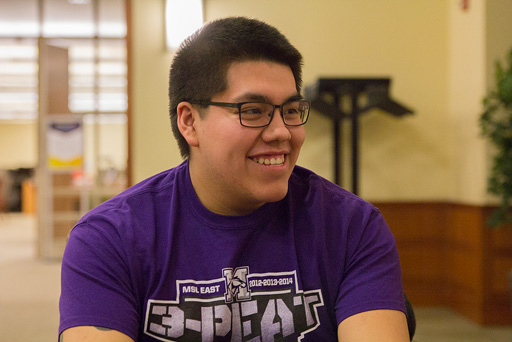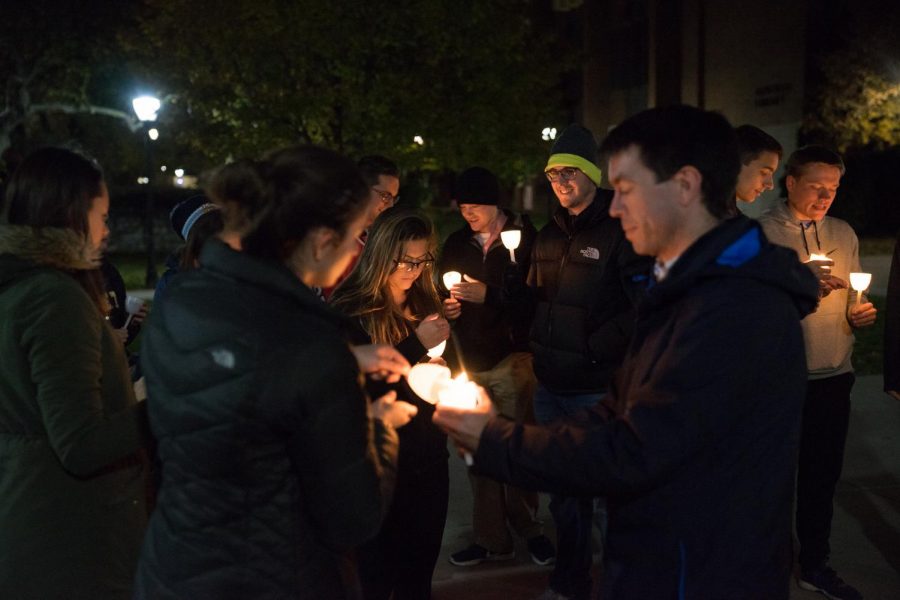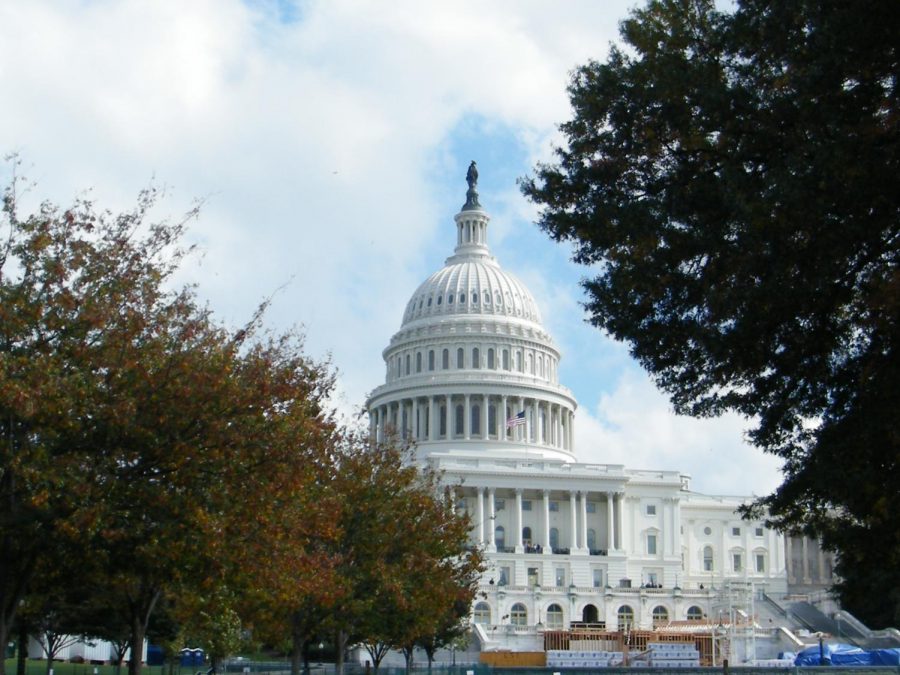
President Donald Trump signed executive orders late last month to expedite approval of the Dakota Access Pipeline. The pipeline is slated to cut through lands that are considered sacred by Native Americans, causing protests at sites where construction is supposed to begin.
A Marquette student was directly affected by the 1,172 mile-long pipeline project stretching from North Dakota to Illinois. Eman Shott, a Native American freshman in the College of Arts & Sciences, was called back to his South Dakota Tribal Union to vote on the pipeline construction in August.
Shott, whose full last name is Shott With Two Arrows, is a member of the Lakota Sioux tribe. He serves with his uncle on the Tribal Union, a gathering of two elected members from each family of the tribe to deliberate over issues facing the reservation.
The majority of the Tribal Union did not approve of the pipeline completion, but the recent executive orders overruled the Union’s vote.
At the meeting in August, “there were a couple members of the (U.S.) government there,” Shott said. “They went over the general (information): ‘This is how people are going to benefit; you’re going to lose this much of your reservation.’ I was perfectly okay with it.”
Shott signed a piece of paper saying he would advocate for the pipeline’s completion. “We have thousands upon thousands of miles that we don’t use,” he said. “More or less, there’s just garbage that piles up over there. Let them build the pipeline. It will benefit everybody. They don’t see it right now. They see their sacred lands getting torn up.”
Fervent protestors who wish to preserve the sacred lands include members of various Native American tribes and environmentalists. According to the Standing Rock Syllabus, the pipeline violates the Treaties of Fort Laramie of 1851 and 1868.
The treaties reserved more than 12 million acres of land for Native Peoples in parts of North Dakota, South Dakota, Wyoming, Montana and Nebraska. The land included the Black Hills, which are considered sacred by the Lakota.
Furthermore, outrage has gone on, as the original plans for the pipeline were supposed to pass through the predominantly white border town of Bismarck, North Dakota. The plan was then diverted to pass over Standing Rock. Anti-DAPL protesters have referred to this as environmental racism.
Those who put together the Standing Rock Syllabus hope to construct a more broad and historical frame of reference for the pipeline. They encourage readers to engage in conversation across various social media platforms using #StandingRockSyllabus.
Protests have gone on across the country to stall or discontinue its construction, including the main protests at Standing Rock. Marquette is home to many who oppose the pipeline, including faculty and students.
“The government just keeps taking everything that makes Native Americans themselves away from them,” Kayla Macho, a freshman in the College of Health Sciences, said. “First the whole country, now this? Contaminating their water source, although it is environmentally terrible, is also taking away the spiritual connection that they have with the water.”
While Macho said the pipeline may have benefits, she is doubtful that the end would justify the means.
“Obviously it could be efficient, but it’s not worth the consequences,” Macho said. “Like in theory, yeah, it would be great. But communism is great on paper, too.”
Marquette declined to take an official position on the pipeline. “As an institution, Marquette generally does not take formal positions on political issues or endorse political candidates,” Chris Jenkins, associate director of university communication, said. “Individual members of the Marquette community who feel passionately about this or other issues are encouraged to make their voices heard. Native American students are valued at Marquette, and make important contributions to our campus culture. The university is currently exploring opportunities to make even more coordinated and intentional efforts to help Native American voices be heard on our campus.”
Shott spent the summer before his senior year of high school on the Pine Ridge Reservation in South Dakota in order to enroll in the tribe. He normally lives in a suburban home in Arlington Heights, Illinois.
“It’s a thing we do to get initiated into the tribe,” he said.
Shott said living on the reservation was an eye-opening experience. “It’s a culture shock,” he said. “The one thing I took away from it is that anything you have in your life right now, you should value it. You really should.”
Shott said he was happy and excited to learn about his culture from the bottom up, but also said the environment is haunting to behold.
“It’s like a Third World country,” he said. “On the entire reservation, we have maybe one or two houses that are fully intact. The community center where everyone works, it’s just, it’s going down. There’s holes in the wall, broken glasses … many of the buildings don’t have electricity.”
Pine Ridge Reservation is recognized as the most impoverished county in the United States. “No one really sees it, because social media doesn’t really get out over there,” he said. “It brings reality to you.”








